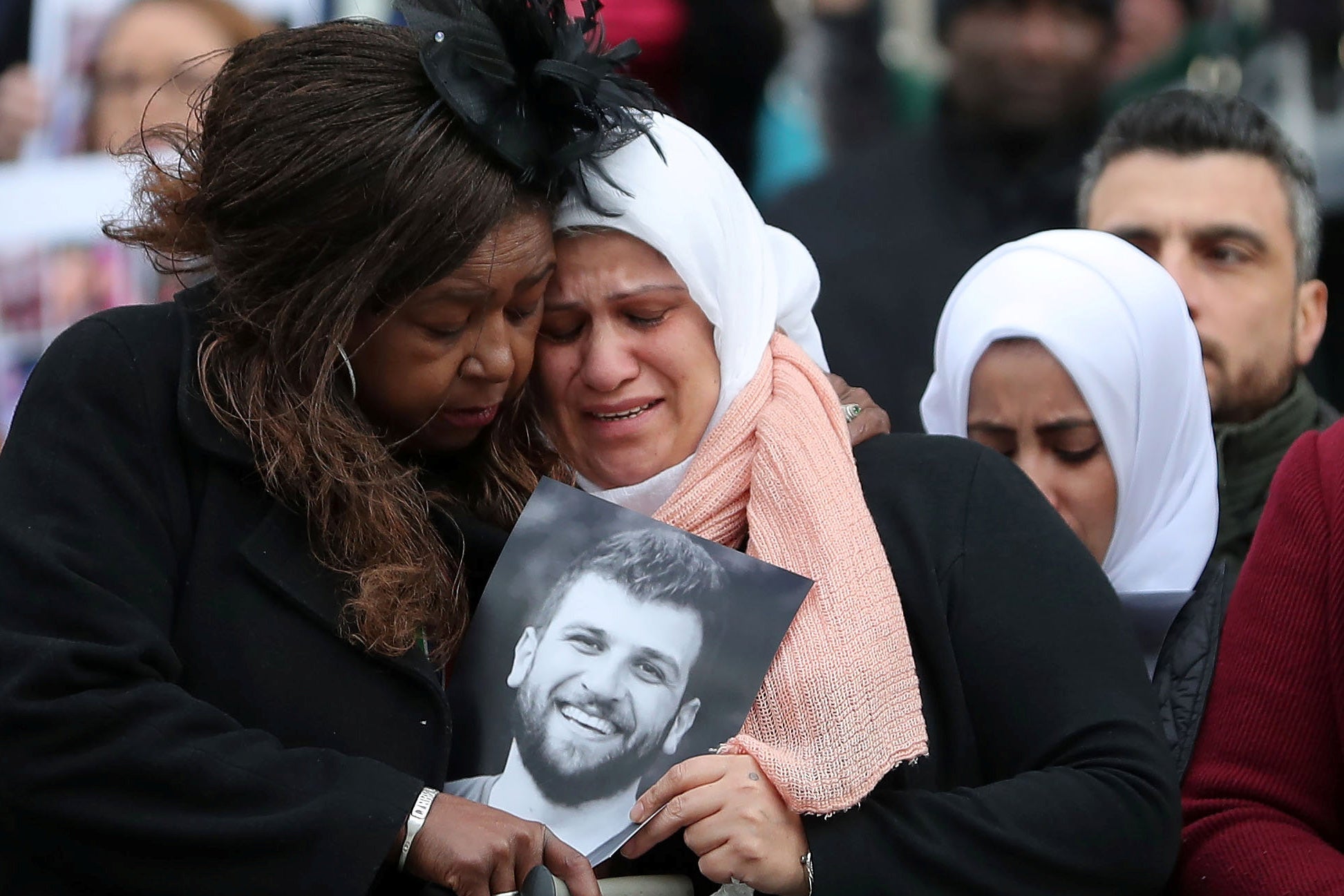Grenfell Tower fire anniversary: Six months on from tragedy that killed 71, how close are families to justice?
'The Grenfell Tower fire has become a symbol of the inequality that exists in our country'

Your support helps us to tell the story
From reproductive rights to climate change to Big Tech, The Independent is on the ground when the story is developing. Whether it's investigating the financials of Elon Musk's pro-Trump PAC or producing our latest documentary, 'The A Word', which shines a light on the American women fighting for reproductive rights, we know how important it is to parse out the facts from the messaging.
At such a critical moment in US history, we need reporters on the ground. Your donation allows us to keep sending journalists to speak to both sides of the story.
The Independent is trusted by Americans across the entire political spectrum. And unlike many other quality news outlets, we choose not to lock Americans out of our reporting and analysis with paywalls. We believe quality journalism should be available to everyone, paid for by those who can afford it.
Your support makes all the difference.Members of the royal family have joined bereaved families and survivors of the Grenfell Tower fire for a memorial for the 71 people killed in the blaze.
A banner bearing a green heart and the word “Grenfell” was held aloft by mourners, who also clutched white roses and photographs of the dead.
As they left the memorial, held at St Paul’s Cathedral, the bereaved called on politicians to deliver justice.
But, six months on from the blaze, how close are we to achieving such a sense of completion? Here are the central issues at play.
Homelessness
Two days after the disaster, the Prime Minister promised families would be rehoused within three weeks. In November, the Royal Borough of Kensington and Chelsea (RBKC) said every survivor would be able to move into a new home before Christmas.
But Grenfell United, a support group of Kensington residents, said earlier this month four out of five families made homeless were still searching for permanent accommodation, while almost half face Christmas in a hotel.
Leaving the memorial on Thursday, Mr Corbyn told reporters: “Families who suffered in the fire should not be in hotels, should not be in bed and breakfasts. For goodness’ sake, we’re the sixth richest country in the world – can’t we house 400 families?”
Even if the households still living in emergency accommodation are offered permanent housing soon, there are concerns residents will face more restrictions and less secure tenancy arrangements if they move elsewhere.
The inquiry
Survivors continue to say they are not placed at the centre of the probe into the tragedy, despite repeated assurances from its chairman Sir Martin Moore Bick and the advisers who surround him.
Core participant status has now been granted to 424 individuals and groups, which allows them access to evidence and the right to suggest lines of questioning.
But it does not afford them decision-making capabilities, and survivors have petitioned the Prime Minister to appoint community representatives to the inquiry’s main panel.
Survivors of the disaster have also expressed anger that the scope of the public inquiry does not examine the broader issue of the Government’s social housing policy.
On the weekend, the UK’s human rights watchdog, the Equality and Human Rights Commission (EHRC) said it would launch its own inquiry into the disaster, which will look into whether the human rights of Grenfell Tower residents were violated.
The probe promises to reveal whether the Government failed in its duties to protect life and provide safe housing.
David Isaac, Chair of the EHRC, said: “The Grenfell Tower fire has become a symbol of the inequality that exists in our country.
“From the right to life to the duty to provide adequate housing, there are several areas where the state fell short in its duties to its citizens, and these must be properly addressed.”
Fire safety and building regulations
The Grenfell tragedy, in which plastic-fllled cladding spread flames between apartments, compelled the Government to examine the building materials used in tower blocks across the country.
“We cannot and will not ask people to live in unsafe homes,” Ms May announced a week after the fire.
But inspections revealed hundreds of blocks were clad in Grenfell-style panels, and thousands of people are still living in homes where this has not been removed or replaced.
In the weeks following Grenfell, 262 tower blocks were discovered to have similar cladding, including 161 social housing buildings and 26 student halls of residents.
Meanwhile, just 2 per cent of the UK’s council and housing association-owned buildings have full sprinkler systems, according to a BBC investigation published in September.
Commissioner of the London Fire Brigade, Dany Cotton, has also called for all tower blocks to be retrofitted with sprinkler systems in the wake of the disaster.
She said on Tuesday a fire of a similar size to that at Grenfell “could happen again”.
Residents’ immigration status
The Government has proposed an immigration amnesty to survivors of the blaze, although survivors are suspicious of the offer, according to resident support groups.
Campaigners claim there are loopholes in the amnesty that could allow the state to deport people if they come forward, meaning many could be afraid to seek help.
The Home Office is yet to publish figures for the number of undocumented immigrants who have tried to access support through the scheme.
Funds raised for the victims
In total, £24m has been donated to the main Grenfell charitable funds, the Charity Commission said last week. Of this, around two-thirds – £16.1m – has been distributed.
Join our commenting forum
Join thought-provoking conversations, follow other Independent readers and see their replies
Comments